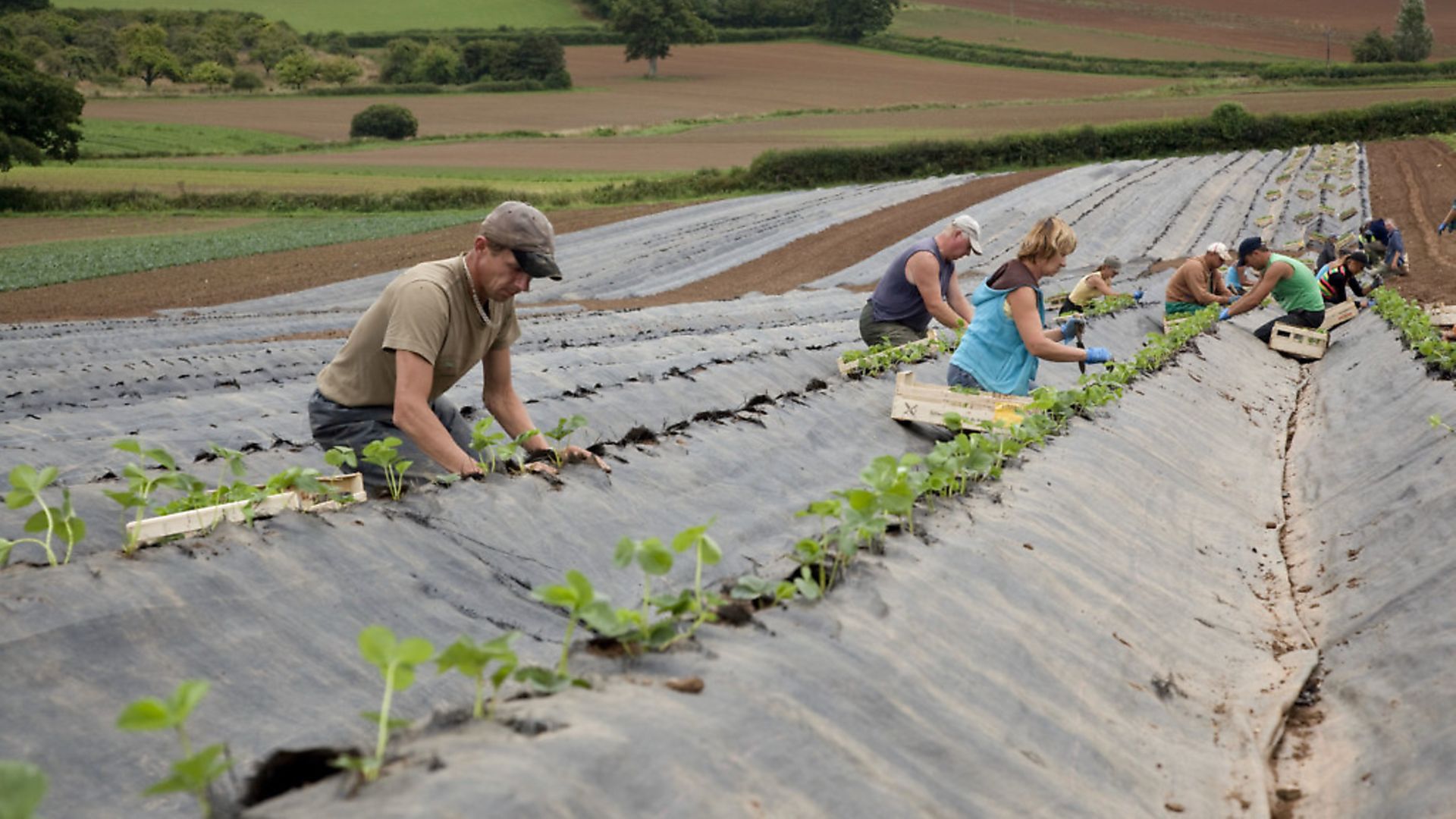
Will Britain’s soft fruit industry be squashed as a result of Brexit? WikiTribune’s HARRY RIDGEWELL reports
Red berries – succulent, plentiful and locally-grown – are one of the joys of the British summer. But we might have to savour them while we can. Senior figures are predicting the collapse of the UK’s berry industry because of Brexit, and the axing of a scheme which allowed European labourers to fill vacancies on British farms.
Staff shortages have already been reported, along with accounts of fruit being left to rot, with no-one available to pick and process them. For decades, the UK operated a six-month seasonal agricultural workers scheme, which allowed Europeans to travel here to fill vacancies. But it was closed in 2013 with the government arguing that the accession of several eastern and central European countries to the EU (and the arrival in the UK of a number of their countrymen) meant it was no longer needed, and that its scrapping could open up jobs for British workers.
At the time farmers and migration experts warned that such a move would lead to labour shortages in the future. But Brexit has further transformed the picture, making it an even more bleak one for farmers. Last year, the National Farmers’ Union reported an average 11% shortfall in seasonal workers in horticulture and there are fears that this year will be worse.
Prior to the referendum, the UK was an attractive place for seasonal workers, according to the NFU’s Ali Capper. But this has changed since the vote. The reasons are economic and social – but both ultimately Brexit-related. The fall in the value of the pound has made the UK a less attractive place to work, while there is also a perception, since the referendum, that European workers are less welcome. Capper’s workforce on her own farm, in Herefordshire, has experienced tensions. “I made a mistake of allowing one of my long-standing members of staff from Poland to be interviewed by a couple of the national media. And he had some very unpleasant phone calls afterwards,” Capper said
Most of her 20 Polish workers want to return to her farm next year, but whether they can is uncertain. The Department for Environment, Food and Rural Affairs say that until December 2020, “employers in the agricultural and food processing sectors will be free to recruit EU citizens to fill vacancies and those arriving to work will be able to stay in the UK afterwards”. However, this ‘guarantee’ appears to be based on the proposed transition arrangement – which has yet to be confirmed. As the EU’s December 2017 Brexit progress report put it: “Nothing is agreed until everything is agreed.”
Such unfounded assurances are not good enough for growers – or their employees – who need more certainty from politicians about to plan for the future. Without it, there may be no future for the industry. Last summer, British Summer Fruits (BSF), the body which represents 97% of the industry, warned it would be “crushed” by September 2018, unless a seasonal workers scheme was in place. Without any sign of one, that warning remains in place.
“Until I hear something positive from Number 10 Downing Street and the Home Office, who are the people who are the arbiters of this, I’m suffering from a fairly severe lack of confidence,” says Nick Marston, chairman of BSF. “If no scheme is put in place, the berry industry, effectively, will cease to exist.”
Some have argued that UK farmers have become hooked on cheap, foreign labour, perpetuating low productivity and denying opportunities to British workers. The current challenges facing the industry are just, these critics argue, necessary readjustments which will ultimately benefit the country. However, the UK’s employment rate is the highest it has been since 1975. There is no untapped source of British seasonal labour, farmers say.
Another claim is that the UK’s soft fruit industry is ripe for investment in automation technology. But robotic pickers are not yet ready to pick up the shortfall about to be created by departing seasonal workers.
Already – in the absence of meaningful assurances from the government – growers are looking at moving their operations overseas, particularly to China. If the soft fruit industry does move significantly overseas, consumers back in Britain will face the added costs of transport, plus – depending on the final Brexit deal, or otherwise – potential tariffs. Price rises are “absolutely inevitable,” says Marston, if the staff shortages are not addressed.
Unless the chronic problems – which all stem from Brexit – are tackled soon, another industry could be about to wither on the vine.
A full version of this article can be found at WikiTribune.com









